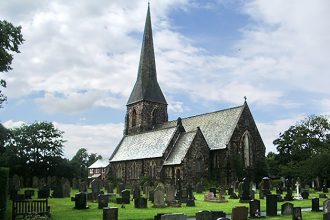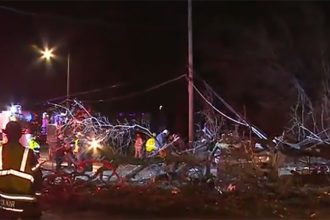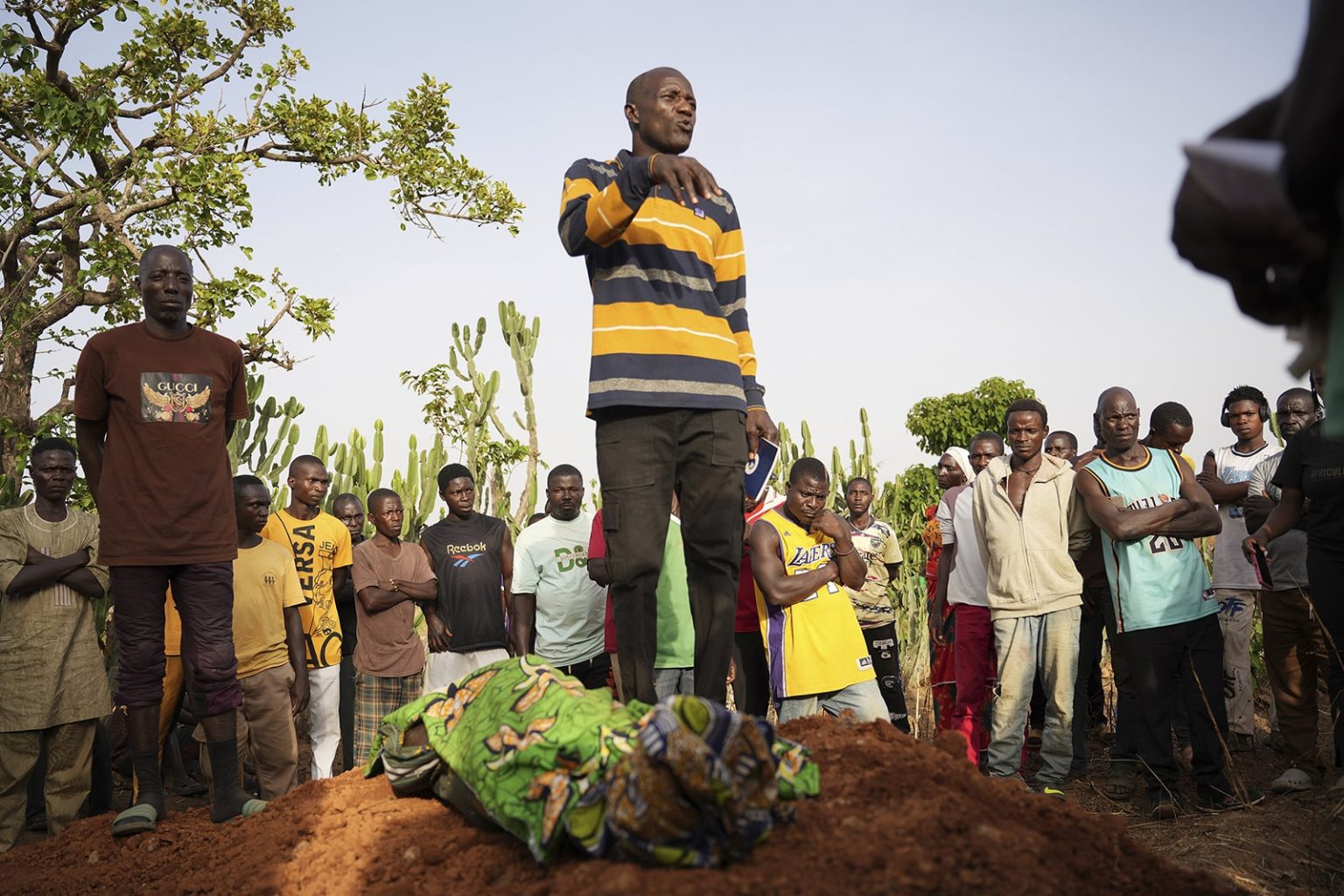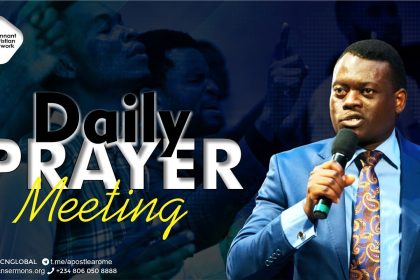As Christians across the globe prepare to celebrate Easter, many in Nigeria fear they may be unable to observe the sacred day due to escalating attacks from Islamic militants. “We could not celebrate Palm Sunday due to the security situation in our area,” Mary Yakubu, a resident of the Nigerian central Plateau state, where nearly 200 Christians were killed on Christmas Eve in 2023, told media by phone. “Once again, we will be unable to prepare and celebrate Easter, as most churches here are closed and people fear gathering due to the ongoing attacks on churches and worshippers.”
Yakubu’s fear is not unique. Communities in Plateau and other regions are facing a new wave of attacks by Islamic militant groups including the Fulani, Boko Haram and Islamic State West Africa Province. The nation of over 236 million people has seen the jihadist violence escalate in the last couple weeks.
In Plateau, over 60 Christians were killed by radicalized Fulani militants in a series of violent attacks in early April. The attacks targeted several villages and have also resulted in the displacement of more than 1,000 Christians and the destruction of 383 homes, said community leader Maren Aradong. State Gov. Caleb Mutfwang referred to the assaults as a genocide.
Open Doors — a group that supports persecuted Christians around the world — estimates that over a hundred million people, or 46.5% of the population in Nigeria, identify as Christian.
According to the Open Doors World Watch List, approximately 3,100 Christians were killed and 2,830 were kidnapped in Nigeria in 2024 — far surpassing any other country last year. Open Doors ranks Nigeria seventh on its list of countries where Christians face the highest levels of persecution.
Your tax-deductible gift supports our mission of reporting the truth and restoring the church. Donate $50 or more to The Roys Report this month, and you can elect to receive “Days of Fire and Glory: The Rise and Fall of a Charismatic Community” by Julia Duin, click here.
Fulani extremists in particular are increasingly targeting Christian farmers to take over their land and livestock. In their quest to establish an Islamic caliphate, the extremists also intimidate Christians, demanding they convert to Islam or face death.
Pastor Moses Mashat of the evangelical Christian church in central Nigeria told media that Christians in the country are deeply concerned about their safety during Easter celebrations. Abductions and killings by militants are frequent and random, he said.
“It is unfortunate that attacks like these are eroding the freedom of worship for Christians,” he said. “Many people are avoiding church, and they will not celebrate Easter or other events like Christmas because of these threats.”
Mashat asked for prayers to protect believers during Holy Week, noting it has also become challenging for ministers to establish new churches and share the gospel in certain regions due to fears of attacks.
Militant groups in northern Nigeria and the north-central region, particularly in Plateau, are especially targeting men, Mashat said, and are kidnapping, molesting and raping Christian women. They are also destroying homes, churches and people’s livelihoods. Historically, Christians were mostly at risk in the Muslim-majority northern states, but violent attacks are increasingly occurring in the south, where the majority of Nigeria’s Christians live, he added, calling it an “alarming trend that cannot be ignored any longer.”
“The attacks are on the rise, and the government needs to take action,” he said, also noting the harsh realities Christian converts from Islam face as they often endure rejection from their families and intense pressure to abandon their newfound faith.
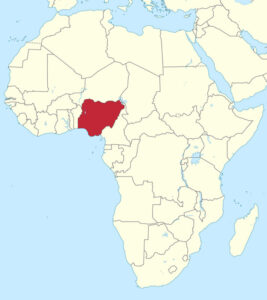
Jeff King, president of International Christian Concern, an organization advocating for persecuted Christians around the world, also raised concerns about the frequent attacks, particularly in Plateau, describing the situation as “Nigeria’s genocide against its Christian population.” He criticized the Nigerian government for its inaction and urged immediate international intervention.
“The Fulani militias have operated with impunity for almost 20 years, leaving villages in ruins and families shattered,” he said in a statement. “The Nigerian government has never acted in a meaningful way to catch the perpetrators of these attacks or bring them to justice because they choose to ignore them while they plead with the U.S. for more military aid. The global community must hold the Nigerian government accountable to stop the stealth jihad and slow-motion genocide.”
For decades, the Nigerian army has combated Islamic militant groups across the country. However, the government lacks a clear strategy and its security forces are often unable to execute precise strikes against the insurgents. Consequently, government operations frequently result in indiscriminate killings of both insurgents and civilians.
Bishop Michael Gobal Gokum of the Pankshin Diocese in Nigeria’s north-central region described the situation as devastating. He said one local church is currently sheltering over 1,000 residents who were recently attacked by Fulani militants in Plateau.
During a visit with displaced individuals, Gokum observed that the latest round of attacks this month affected children, the elderly and the sick, leaving many with life-threatening injuries and resulting in significant destruction of property, he said. He urged the government to take action as surviving residents are traumatized by these attacks.
“The people have suffered enough at the hands of terrorists, kidnappers and criminal elements,” Gokum said. “The perpetrators of these heinous acts should face the full extent of the law.”
Yakubu emphasized the Nigerian government cannot resolve the security crisis without pressure from the international community. And as churches currently lack adequate security, people are tending to avoid worshipping in them due to fears of being targeted.
“We have been raising concerns about security for a long time, as our loved ones continue to be killed and our freedom of worship is restricted,” she said.
Tonny Onyulo is a freelance print and broadcast journalist based in Nairobi, Kenya, and a contributor to Religion News Service.


